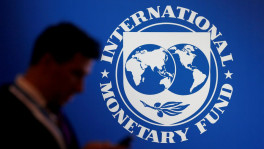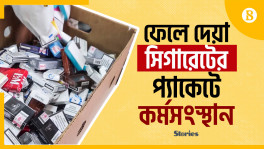'Making Teesta deal a bargaining chip won’t be wise'
Recently in an interview with The Business Standard, Dr Mustafizur Rahman, a distinguished fellow at the Centre for Policy Dialogue (CPD), has talked about the Bangladesh-India transhipment deal and the state of overall bilateral economic ties between the two countries

Dr Mustafizur Rahman is currently serving as Distinguished Fellow at the Centre for Policy Dialogue (CPD), a leading think tank in South Asia. Earlier he taught as a Professor of Economics at the University of Dhaka. He is currently a member of the Dhaka University Senate and member of the Board of Trustees of the BRAC University.
Recently in an interview with Masum Billah of The Business Standard, the distinguished economist has talked about the Bangladesh-India transhipment deal and the state of overall bilateral economic ties between the two countries.
The Business Standard: On July 20, India has conducted its first trial run of the transhipment of goods to its north-eastern states through Chattogram port. How do you evaluate this deal? Is this a fair deal for Bangladesh?
Mustafizur Rahman: The first trial run of transshipment of goods to Agartala and Assam States in north-east India via the Chattogram port has taken place as per the amended protocols of the Inland Water transit and Trade Agreement signed between Bangladesh and India in 1972. The first amendment to the Agreement, signed in June 2015, included an Agreement on Coastal Shipping and the second amendment, of May 2020, allows each country to have access to eleven ports of call in the other country, along with two extended ports of call. As a matter of fact, the protocol reestablishes the connectivity which was in place prior to 1965. The trial run took place following finalisation of the standard operating procedures (SOPs) in 2019. A vessel carrying four transit containers of steel bars for West Tripura district and pulses for agro-processing for Karimganj district in Assam were offloaded at the Chattogram port, and reloaded on trailers for onward transport to Agartala through the Akhaura land port situated at a distance of 200 km.
According to the Agreement, the two countries were to provide same treatment to each other's vessels used in international sea transportation. Ships operating under the agreement will be charged port dues and levies as applicable to local vessels of respective countries plying on domestic routes which are lower by about 40% than the rates applicable for foreign going vessels.
Charges at the port of calls in Bangladesh, in this case, Chattogram, will be similar to the ones for vessels from Bangladesh plying to ports of call in India. At the Chattogram port seven types of fees are to be charged: transshipment fee, fees for processing of documents, security charge, escort charge, administrative fees etc. No transit or customs fees are to be charged. Treatment of Bangladeshi vessels at Indian ports will be based on reciprocity. However, benefits to be gained by Bangladesh will also depend on whether and to what extent Bangladeshi operators are able to take advantage of the protocol. Bangladeshi operators currently do not have the type of river sea class vessels that can take advantage of the Protocol. However, it is to be noted that vessels coming from India will also carry goods for Bangladeshi importers. Indeed, the trial vessel carried 108 containers of which 104 containers carried goods imported by Bangladesh and four were destined for the north-east.
The coastal shipping agreement will allow Indian vessels to avoid the detour via Colombo and Singapore and reduce the cost and delivery time by about two-thirds; from 25 days to about 7 days with an estimated savings of about US$300/container in case of certain routes. The agreement will reduce the burden of Benapole-Petrapole land port through which 90% of current bilateral trade takes place. The congestion at this port raises cost and increases lead time for traders on both sides. Consequently, consumers, producers and exporters using imported inputs both in Bangladesh and India will gain.
India was keen to raise the tonnage of vessels from current six thousand tons stipulated under the protocol. India is also interested in more ports to be included. Bangladeshi operators have expressed interest to take advantage of the protocol to trade with third countries, via Indian ports of call, which would reduce our import time and create business opportunities for our shippers. These issues will need to be addressed in future and the protocol amended accordingly, once the viability and benefits of the protocol and transshipment arrangement are proven on the ground. Of crucial importance will be the ease of movement from Chattogram port to land ports in the north-east. The roads will need to be upgraded for use by Bangladeshi transport operators for the purposes of the transshipment. I feel that Bangladesh's main benefit from the protocol will be in the form of business opportunities for our transport operators. However, if port bottlenecks are not addressed and road conditions not adequately improved, the transshipment arrangement may see the fate of the riverine transit offered by Bangladesh to India since 2016 through the much-hyped Ashuganj International River port which regrettably has not taken off. Traders must be able to benefit from adequate infrastructure, reduced cost and shorter lead time, which will lead to scaling up of transshipment, which in turn could ensure adequate returns on Bangladesh's additional investments.
TBS: For now, there is less traffic at CTG port due to the pandemic. But after the pandemic, traffic will increase. In that situation, when the number of Indian ships goes up, the traffic congestion at the port can put our businesses in trouble. How could Bangladesh resolve this?
MR: The issues of raising the capacity of the Chattogram port, the turnaround time, productivity and cost-effectiveness are much broader and deeper than the remit of the discussion concerning Bangladesh-India bilateral trade. The constraints that impede the productivity of the Chattogram port must be addressed on an urgent basis and with due seriousness. Indeed, because of the current congestion at the port, Bangladesh did not agree to the Indian request for allocating dedicated jetty to be used by vessels plying under the coastal shipping protocol; however, extending priority treatment to the vessels was included in the protocol. As is known, Bangladesh's trade has been increasing at a fast pace in recent years. 92% of the about $100.0 billion export-import trade and almost all of our country's sea-borne trade pass through the Chattogram port. When even a few of the planned special economic zones will be up and running, Chattogram port will be required to handle a significantly higher number of container ships than at present, way higher than the 3.0 million TEU it is currently handling. The 50,000 TEU storage capacity that the port now has will also not be adequate in view of the future demand. Implementation of the ambitious plan of expanding the container yard by ten times, a project to be carried out with support from PSA Singapore, must be given the highest priority. Operators will lose interest if efficiency at Chattogram port, and for that matter at Mongla and Payra ports, is not raised further so that overall lead time, compared to current options, could be significantly brought down. Otherwise, the coastal shipping protocol may end up facing the same problems as in case of the Ashuganj river port. Indeed, over the last five years only 17 G-to-G and five private consignments have made use of the Ashuganj International River Port. As I also mentioned earlier, Indian vessels carrying the goods for the north-east will also carry goods imported by Bangladeshi importers. It is in Bangladesh's interest that the ports are efficiently and cost-effectively run. If it is able to rise up to the emerging challenges, the Chattogram port has the potential to emerge as a key hub in the Bay of Bengal region.
TBS: Transhipment is a global concept. How the transhipments between other countries take place? Is the rate mentioned in the Bangladesh-India transhipment consistent with the global price?
MR: Transshipment charges world-wide have some common elements. These have been included in the protocol. Three key elements in the Protocol are that the arrangement will involve river-sea vessels of below six thousand tonnage, the two countries will render same treatment to each other's vessels as it would have done to its national vessels used in international sea transportation and sea transport between the countries is treated as coastal movement, which will make it eligible for 40% reduced rate on vessel-related and cargo-related charges. The charges are not themselves that significant, and these are reciprocal meaning if Bangladeshi vessels ply under the protocol arrangement, they will be charged similar fees. To take advantage of the Agreement, Bangladeshi operators will need to acquire vessels of the type allowed under the protocol. However, as I noted earlier, the benefits to Bangladesh will accrue mainly in the form of transport business originating from the protocol rather than port fees and charges.
The recommendation of the Connectivity Committee set up by the present government in 2011, of which I was a member, had put forward the concept of 'benefit sharing' in the negotiations. The idea was to calculate the financial benefits to be accrued from the transit and then apportion the benefits on a win-win basis by taking into account not only fees and charges but also the associated investments to be made by Bangladesh in building the required infrastructure. However, the report was not followed up, and things have moved on since then. We should now do our best to make the current initiatives, including the coastal shipping protocol work, and look at these from the perspective of deepening bilateral and sub-regional integration.
As we know, a number of initiatives have now been set in motion. The BBIN Motor Vehicle Agreement, SOPs of which have been completed. India has allowed Nepal and Bhutan road, rail and riverine transit to trade with Bangladesh. Bangladesh is importing more than a thousand megawatt of electricity from India and selling bandwidth to the north-east. India is offering duty-free market access to virtually all exports from Bangladesh. It has extended US$200 million from the first line of credit (LoC), as grant, towards building of the Padma bridge and investing US$115 million under the third LoC to develop the dedicated SEZ in Chattogram for Indian investors. Indeed, transit trade between western part and north-east of India and imports by Bangladeshi traders are closely entwined, as I pointed out earlier. All these initiatives, taken together, have propelled our bilateral relationship to newer heights. But it is also true that all such initiatives need to be negotiated, and as they say, in international agreements countries get not what they deserve but what they negotiate. So, while realising the opportunities of closer bilateral cooperation with India, we should at the same time do our required homework to identify our interests, concerns, demands, offers, requests and non-negotiables. There is a need to do this homework with diligence and well-preparedness, and with the due care that this task of crucial importance deserves.
TBS: Following this deal, there had been controversies in Bangladesh that we have been giving our larger neighbour too much while many of our crucial demands, Teesta water distribution issue for an example, was never resolved. How do you observe these debates?
MR: Regrettably, despite Bangladesh's persistent efforts the sharing of Teesta River water has continued to remain an unresolved issue. This is working as a deterrent to realising newer opportunities of deepening our bilateral economic ties. As a co-riparian country Bangladesh has justified reasons to have a water sharing deal that addresses its concerns and interests. I am hopeful that a mutually acceptable solution will be reached soon as we build trust through closer cooperation. Bangladesh has gone a long way in addressing one of India's key concerns, security, and has been forthcoming in offering transit facilities. It can justifiably expect the Indian central government to do its best to arrive at a deal with the West Bengal state government to resolve the issue. Indeed, many experts have argued in favour of joint river basin management for all our common rivers. However, I think that making Teesta agreement a bargaining chip to stall all other bilateral initiatives will not be a wise option. 'Transit in exchange for rivers' approach has not worked in the past, and is unlikely to work in future. Only through growing cooperation and mutual dependence can we create the conducive environment that is required to take the next step, which then becomes not only necessary but also inevitable.
TBS: How do you evaluate Bangladesh-India trade relations? Do you find it balanced? What more could be done for a balanced trade relation?
MR: Bangladesh-India trade has been on a fast-rising track in recent years. True, there is a significant bilateral trade deficit of more than US$6.0 billion: we exported about US$1.25 billion worth of goods against an import of US$7.6 billion (in FY 2018-19). Even in FY 2019-20, a difficult year, Bangladesh's export to India had exceeded the US$1 billion dollar mark. The challenge for Bangladesh is to be able to take a larger share of the growing import market of India through higher volumes of export.
A number of points have to be kept in mind as regards the trade deficit. Imports from India has risen mainly because our importers find Indian goods to be competitively-priced and good value for money. It is to be kept in mind that it is the private traders in Bangladesh who are the major importers, not the government of Bangladesh. In recent years, there has been significant import substitution favouring India, and also China. Incidentally, our imports from China has also gone up for similar reasons – at US$17.0 billion this is more than twice that of India. We are importing more from India because importers of final goods find the prices competitive which is then passed on to our consumers; our producers benefit from competitively-priced raw materials and intermediate items; our exporters, for example of apparels, are able to sell at competitive prices globally thanks to import of competitively-priced raw materials and intermediate inputs from India. The challenge for Bangladesh is to translate the current bilateral initiatives into our export opportunities in India. India has imported goods worth about US$500 billion in 2019; Bangladesh's export share in this was only about one-fifth of one percent. Attracting investment from India, and other countries, and taking advantage of duty-free market access offer of India, to export more to the Indian market – this should be seen as Bangladesh's next frontier. The ongoing initiatives for deeper riverine, road and rail connectivity and Indian investment in SEZs should help us to reduce lead time and production cost and raise competitive strength of our export enabling us to translate our comparative advantages into competitive advantages in the Indian market.
I would like to see our bilateral relationship with India as a key component of our future as a trade-transport-investment hub of southern Asia, the gateway of this huge hinterland to the Bay of Bengal. The belt and road initiative, BBIN-MVA, riverine, rail and road connectivities, sub-regional energy grid, investment in SEZs, trade facilitation initiatives, – all these should be seen as key components of Bangladesh's strategy to deepen its multi-dimensional connectivities with southern Asia: transport, investment, trade, logistics, energy and people to people connectivity. Implementing such a strategy is not without attendant challenges and risks but the option of doing nothing and not taking calculated bold steps is also no more an option for our country as it envisions its journey forward in the twenty-first century.


 Keep updated, follow The Business Standard's Google news channel
Keep updated, follow The Business Standard's Google news channel
















